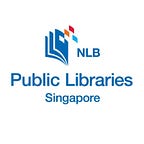Erni Salleh on the Interconnectivity of a Librarian and a Writer
There are several assumptions people might make about libraries and librarians, one of them being, “if you’re a librarian, you should be a good writer”. And we can see why people would think that. Being surrounded by books all the time would surely inspire one’s own literary creativity as well?
But while both writers and librarians are in the business of books, each profession demands a different set of skills. Which begs the question — does being a librarian actually help in becoming a better writer or does it hinder good writing?
We speak to first-time novelist, Erni Salleh, Manager of our Molly Library (and one of the four writers to be shortlisted for the 2020 Epigram Books Fiction Prize), to weigh in on the interconnectivity of being a librarian and a writer.
Let’s set the record straight, what do librarians really do?
People always think my job involves stamping due dates on books and shushing patrons who make noise in the library!
But librarians actually encourage dialogue and discussions, especially about books and social issues within our library spaces. We do this through curating book recommendations and programmes for the different ages and supporting various types of book clubs.
Did your love for writing have something to do with you becoming a librarian?
I wrote my first 10,000-word story when I was 12. I’ve always felt that the 100-word limit in school assignments was too short to tell a story.
Over the years, writing continued to help me create the connections I felt were lacking in the books I read, or even in the real life relationships I experienced or observed. Growing up, there were also not many Young Adult books that resonated with me so I wrote my own in a bid to make sense of my surroundings.
I suppose you could say that my love for stories eventually led me to become a librarian.
How do you balance your day job with writing?
Most people are surprised when I tell them that I can only write when I’m highly stressed. Honestly, I write anytime and anywhere with a pen and blank notebook filled with scribbles – on the bus, during lunch if I’m alone, even while waiting for a library programme I’m overseeing to start. Then as soon as I get home, I add the ‘meat’ to the skeleton that I had jotted down throughout the day.
This method was actually something I picked up from another local author Hassan Hasaa’Ree Ali when he gave a workshop at Ang Mo Kio Public Library. This is the beauty of working in the library – where I have access to various authors through different programmes and book clubs.
How did being a librarian help or hinder your creative process?
- The ability to find a book on the shelf quickly due to my familiarity with the Dewey Decimal Classification (DDC), for my research.
- Having access to books on a daily basis. This also doubles as an opportunity to take a break because I get to walk through the shelves looking for new arrivals at my favourite aisles: DDC 200s, 800s and 900s (religion, literature/writing, travel/history).
“Being a librarian makes writing easier” — what are your thoughts?
Truth is, all the resources that I use for research and improving my writing are available to the public. I don’t get special treatment even when accessing rare documents at the National Library (I got nagged at for bringing a pen instead of a pencil into the reading room by mistake once!).
But being in an environment that constantly supports the business of stories – storytelling, reading, writing – has surely made this process easier.
Speaking as a librarian though, if you ever find yourself thinking “I wish we had more of (insert genre, theme, language, etc) books in the market”, you should just go ahead and write it!
Erni Salleh is a finalist for the Epigram Fiction Prize 2020.
Established in 2015, the Epigram Fiction Prize (EFP) was initiated to promote contemporary Singapore creative writing and rewards excellence in Singapore literature. From 2020 onwards, the EFP is open to writers from ASEAN (Association of Southeast Asian Nations).
-
Text by
Fadzeera Fadzully
National Library Board
